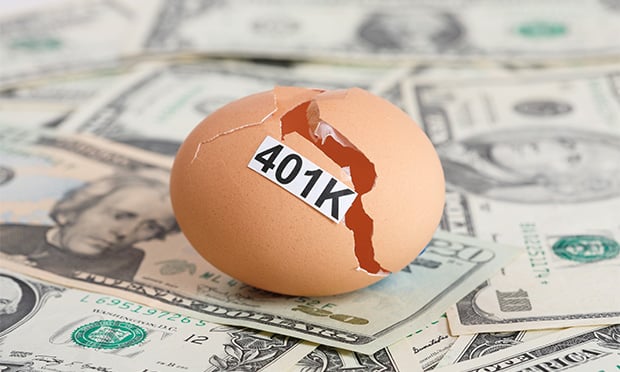(Bloomberg) — New Jersey's pension fund return is expected to exceed 16 percent for fiscal 2014 on gains that include an unanticipated $6.1 billion, according to the state Treasury Department.
Data as of June 30, which exclude some investments reported on a delayed basis, showed returns of 15.9 percent, treasury officials said in a statement. The fund's total value was $80.6 billion, up from $66.9 billion four years earlier. The state investment division will report the performance to its oversight council at a meeting tomorrow.
Governor Chris Christie, seeking voter support for changes to the New Jersey Public Employees'Retirement System atop those he made in 2010, said the state's compensation is "out of whack."
Recommended For You
"I could go, 'Oh, we'll be fine. We'll grow out of it,'" Christie, a Republican in his second term, told about 200 people, half of them police and firefighters, at a speech in Long Beach Township. "It's not the right thing to do."
See also: Christie slashes N.J. pension payments
He declined to name specific proposals to reduce costs. Christie said his administration is looking at a number of fixes that he plans to present around the end of August.
Democrats who control the legislature have said they won't put additional costs on workers who were forced to pay more toward their benefits.
Christie, 51, faced with three straight years of overestimated revenue, backtracked this year on a law he signed in 2010 to compel New Jersey to make seven annual extra payments to the underfunded system. For fiscal 2014, he had planned a $1.6 billion pension contribution.
Promise broken
The governor instead allotted $696 million, the actuarially required amount, prompting lawsuits by public-employee unions. Superior Court Judge Mary C. Jacobson allowed Christie to make the adjustment for fiscal 2014, which ended June 30, saying he faced an emergency. She didn't rule on the decrease for fiscal 2015, when Christie plans to contribute $681 million rather than the promised $2.25 billion.
The state's share of the pension deficit is $38 billion. Because of the smaller payments, the gap will exceed $40 billion by 2016 as its funded ratio drops to 50.8 percent from 53.7 percent, Treasurer Andrew Sidamon-Eristoff said in May.
'Brash, arrogant'
"The two-year annualized performance of the fund is 13.8 percent, demonstrating that prudent yet innovative fiscal management of the fund realized strong returns for plan participants," Sidamon-Eristoff said in the news release. The assumed long-term rate of return is 7.9 percent.
The fund supports seven pension plans that provide benefits to about 770,000 working and retired teachers, police officers and other government employees.
In Long Beach Township, Christie's audience applauded a retired police officer who told the governor that public-safety workers risk their lives for their pensions. Christie told the officer that his benefits wouldn't change, though the state may ask younger, active employees for adjustments.
Chris Oliver, a 30-year-old firefighter with 10 years on the job, called the governor "brash and arrogant" and a presenter of "just one side of the story."
Hedge funds
"Cops' and firemen's and teachers' salaries are actually going down because of the amount they're forced to pay into their pensions and health care," Oliver, president of the Gloucester City local of the Fireman's Benevolent Association, said in an interview.
Robert Costello, 60, of Pine Beach, said he was nervous about his financial future following retirementfrom the Elizabeth Fire Department after 26 years.
"He doesn't want to change the benefits — he wants to slash them," Costello said of Christie in an interview.
About 25 percent of the state pension fund is in alternative investments, including hedge funds and private equity. Other pension plans of similar size had an average 31 percent in such investments, according to treasury.
The administration is seeking a replacement for Charles Steindel, formerly a senior vice president of the Federal Reserve Bank of New York, who in 2010 became the state's first chief economist. The office produced incorrect revenue forecasts for four of the past five years. Steindel is leaving in late August to become a resident scholar at Ramapo College in Mahwah.
The state under Christie has experienced six credit downgrades, matching a record set by Democratic Governor Jim McGreevey. The ratings companies have cited one-time budget fixes, revenue shortfalls and escalating pension and benefits costs as contributors to the downgrades.
For the first time since 1977, municipal-bond investors view the state as riskier than California. New Jersey has the second-lowest credit rating among U.S. states from Moody's Investors Service, which ranks it four steps below top grade. Standard & Poor's and Fitch Ratings have also cut the state this year. Moody's last month raised California to the highest since 2001.
See also:
- Growing number of states cutting pension COLAs
- New Jersey backs off emerging markets as pensioners cut ETFs
- N.J.'s 'crowning act of gimmickry'
To contact the reporter on this story: Elise Young in Long Branch Township, New Jersey at [email protected]
© Touchpoint Markets, All Rights Reserved. Request academic re-use from www.copyright.com. All other uses, submit a request to [email protected]. For more inforrmation visit Asset & Logo Licensing.






